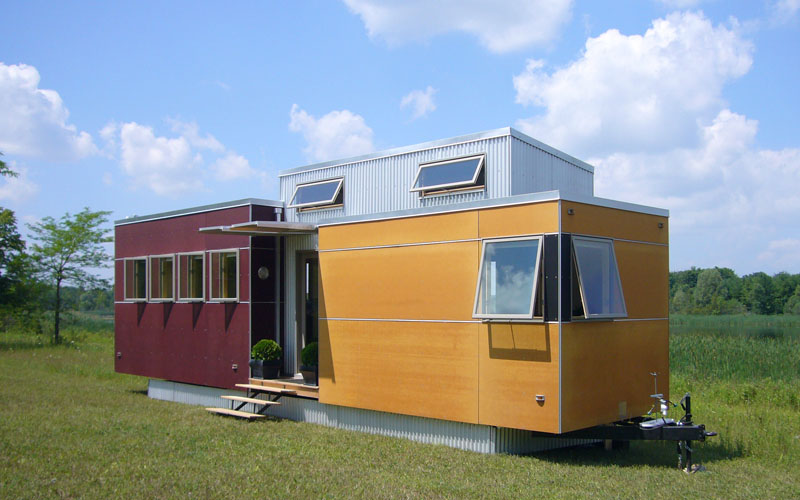Articles by Lisa Selin Davis
Lisa Selin Davis's articles on architecture, real estate, and the environment, among other topics, have appeared in The New York Times, Salon.com, OnEarth, and many other publications. She's the author of the novel Belly and lives in Brooklyn, NY
All Articles
-
A shopping mall becomes a city
The poor shopping mall. That once impenetrable fortress now seems as susceptible to the ailing economy as the rest of us. Vacancies are at an all-time high. Dead and dying malls continue to plague the landscape. And, perhaps worst of all, the mall has transformed from an icon of American life — see Fast Times […]
-
Reinventing the trailer park
Trailer parks get a bad rap, especially in the post-Katrina days when we’ve come to see them as North American refugee camps slowly poisoning their displaced inhabitants with formaldehyde fumes. But the trailer park, done right, actually holds great potential as a development model. MiniHome: a big idea. Sustain Even in its current form, with […]
-
New breed of houses makes use of carbage
Guess what will save the economy and the environment? Buying a new car! Cadillac ranch? OK, maybe not save — but according to the folks at Oregon-based Miranda Homes, it can help. The automobile industry has lost some half a million jobs and $50 billion in revenue while we hang on to our old jalopies. […]
-
Electronics industry takes own temperature at Greener Gadgets
Hm. Where are all the gadgets at the Greener Gadgets conference, a one-day acronym festival -- EPEAT, ROHS, LCA, anyone? -- covering topics from e-waste recycling to the economic benefits of going green. I was expecting to see cell phones crafted of discarded water bottles or a smog-powered BlackBerry. At least they've got the photovoltaic backpacks.
Mostly, the exhibitors' hall and panels include an odd amalgam of entrepreneurs and industry analysts, makers and regulators, who are far less focused on the gadget itself than on where it comes from and where it goes on its cradle-to-cradle journey through the world. "We need to focus on the system, and not just on the gadget," said Intel's Director of Environment and Energy Policy Stephen Harper.
They're just as focused on where the gadget goes to die, an integral part of said system. As keynote speaker Saul Griffith, co-founder of Squid Labs and Makani Power, told us, "There's no 'away' to throw something anymore -- we know where everything goes."


